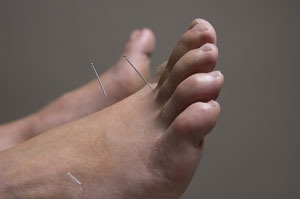Most of us will suffer from headaches at some time
 Headaches have many different causes but can generally be split into two different types: primary headaches, which are not due to another underlying health problem, and secondary headaches, due to a separate cause or illness.
Headaches have many different causes but can generally be split into two different types: primary headaches, which are not due to another underlying health problem, and secondary headaches, due to a separate cause or illness.
The main types of primary headaches are:
Tension headaches, which present as a dull ache with constant pressure around the front, top and sides of the head as if a tight rubber band has been stretched around it. This kind of headache does not worsen with activity and may be relieved by mild exercise. Tension headaches are frequently due to stress, but may also be caused by not getting enough sleep or fluids or missing meals.
Migraines are less common, tend to be more severe and may interfere with daily life. Migraines are usually felt as a pounding or throbbing pain on one or both sides of the head, and are aggravated by routine physical activity. Migraine patients may also suffer auras, hypersensitivity to light and sound and nausea and vomiting.
Cluster headaches are very painful headaches which cause an intense pain around one eye. They’re rare and are called cluster headaches because they happen periodically in clusters for a month or two at a time around the same time of year.
Secondary headaches may occur due to drinking too much alcohol, after a head injury, as a symptom of a cold, flu, sinusitis or allergy. Women may also suffer hormonal headaches linked to their menstrual cycle or the menopause. Headaches may also be symptoms of temporomandibular joint disorders, temporal arteritis in the elderly, and carbon monoxide poisoning.
Conventional medical treatment for headaches usually aims to treat the symptoms and involves the use of over-the-counter or prescription medicines. Prophylactic medications may be prescribed for migraines but may have side effects. Taking regular painkillers may also cause headaches.
Acupuncture for Headaches & Migraines
 The National Institute for Health and Care Excellence of the NHS recommends a course of acupuncture treatments as one of the therapeutic options for the prevention of chronic tension-type headaches and migraines in young people and adults (NICE Clinical Guideline 150, 2012).
The National Institute for Health and Care Excellence of the NHS recommends a course of acupuncture treatments as one of the therapeutic options for the prevention of chronic tension-type headaches and migraines in young people and adults (NICE Clinical Guideline 150, 2012).
A WHO review on controlled acupuncture clinical trials (2003) includes headaches and facial pain among conditions for which acupuncture has been shown through clinical trials to be effective.
The results of many controlled trials of acupuncture for migraine show consistently that acupuncture is effective for treating migraine and appears to be at least as effective as prophylactic drug treatments with few contraindications or side effects. Acupuncture has also been shown to alleviate symptoms during an acute migraine attack. It is believed that acupuncture may help headaches and migraines by:
- Releasing endorphins – natural pain killers
- Releasing neurohumeral factors which change the processing of pain in the brain and spinal cord
- Regulating blood flow
- Reducing inflammation and swelling
- Affecting serotonin levels and other physiological processes in the brain
In addition, acupuncture is very effective for reducing stress levels which can lead to chronic tension headaches. Acupuncture stimulates the parasympathetic nervous system which serves to calm our stress (‘fight and flight’) response.
Treating Headaches & Migraines
 “Headache is one of the most common symptoms seen in my clinical practice. Many factors…stress, worry, anger, overwork, eye strain, computer work, diet, hormone imbalances and constitutional imbalances may be involved. I am seeing increasing numbers of school children with chronic headaches due to excessive mental activity and huge academic demands. Adults are working harder and under more pressure than ever.
“Headache is one of the most common symptoms seen in my clinical practice. Many factors…stress, worry, anger, overwork, eye strain, computer work, diet, hormone imbalances and constitutional imbalances may be involved. I am seeing increasing numbers of school children with chronic headaches due to excessive mental activity and huge academic demands. Adults are working harder and under more pressure than ever.
At your first consultation, I will take a detailed case history. The nature of your headache symptoms and where on your head you feel the pain, combined with examination of your tongue and pulses will help me determine the causes of your headache. Our aim with acupuncture is to help address the root cause of your headaches or migraine, as well as the symptoms, to help prevent further attacks in the future.”
FURTHER INFORMATION
Maciocia, G. 2005. The Practice of Chinese Medicine. Headaches. 1-58. Churchill Livingstone
National Institute for Health and Care Excellence (NICE) clinical guideline 150 – Headaches: Diagnosis and management of headaches in young people and adults (Sept 2012) www.nice.org.uk/guidance/cg150
World Health Organization. Acupuncture: Review and Analysis of Reports on Controlled Clinical Trials (2003), 87pp. Full report http://apps.who.int/medicinedocs/pdf/s4926e/s4926e.pdf
Research Fact Sheets
Research Fact Sheets
For more information see the British Acupuncture Council Research Fact Sheet below.
BRIEFING PAPER on Migraine and Acupuncture
Testimonials
“I decided to contact Judy for acupuncture after suffering from chronic migraines, I had resorted to taking daily preventative medication for the pain but did not want to rely on the medication long term. Judy has been treating me with acupuncture and massage the care and attention I have received from Judy has always been outstanding. Her professionalism and knowledge has greatly improved my understanding of migraines, how best to manage them and my wellbeing. I still see her for occasional treatment for neck and back tension due to my type of work but have been able to stop taking the medication which I was so reliant on before. Thank you Judy.”
“Over the 2 year treatment period of once a month I went from having 50% headaches (15 days out of 30) to just 1 headache every 8 weeks. I cannot speak too highly of Judy and how my life is so much more rewarding. Conventional medicine only recommended taking painkillers. I have no idea how it works – but work it did for me!”



